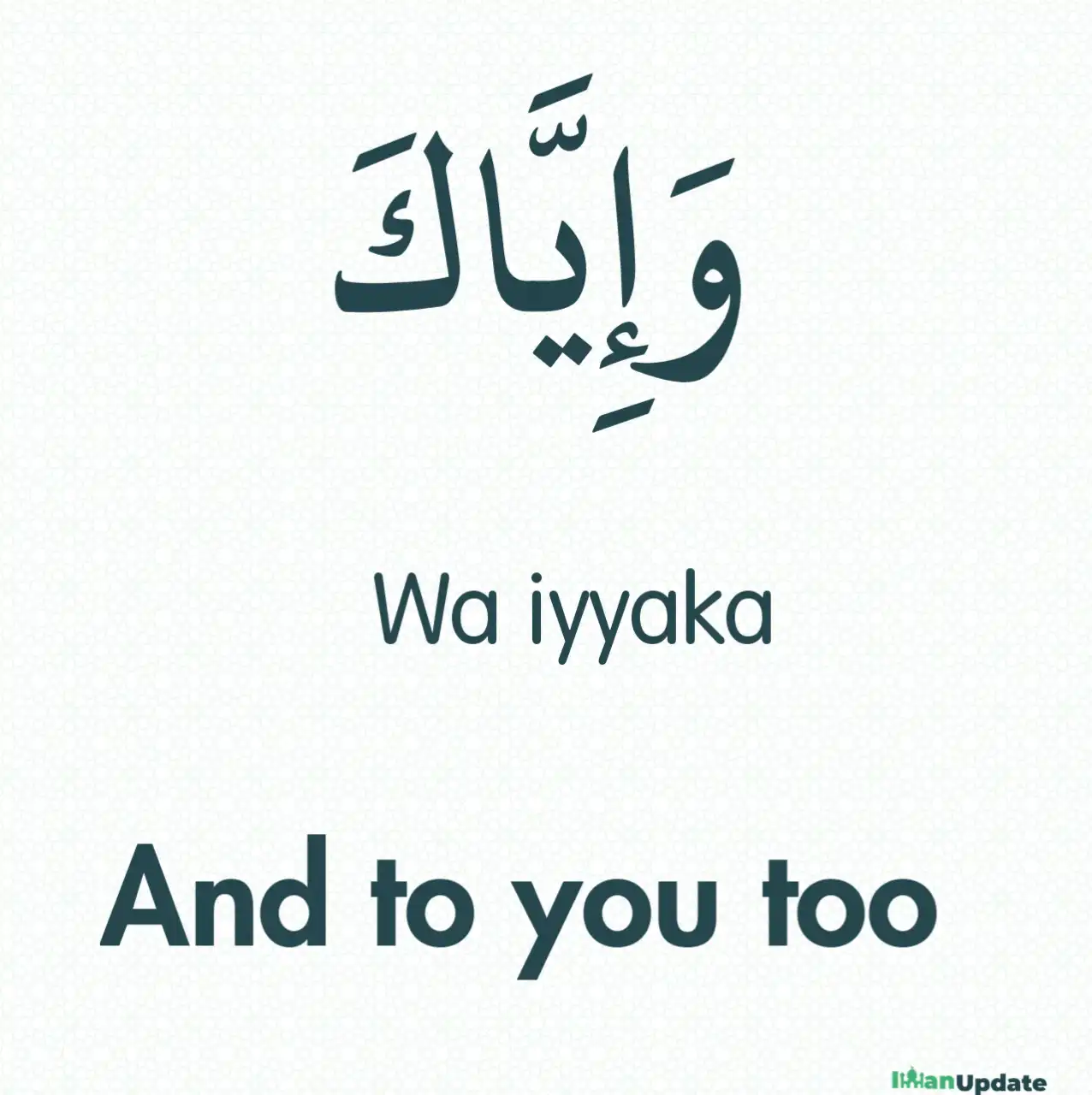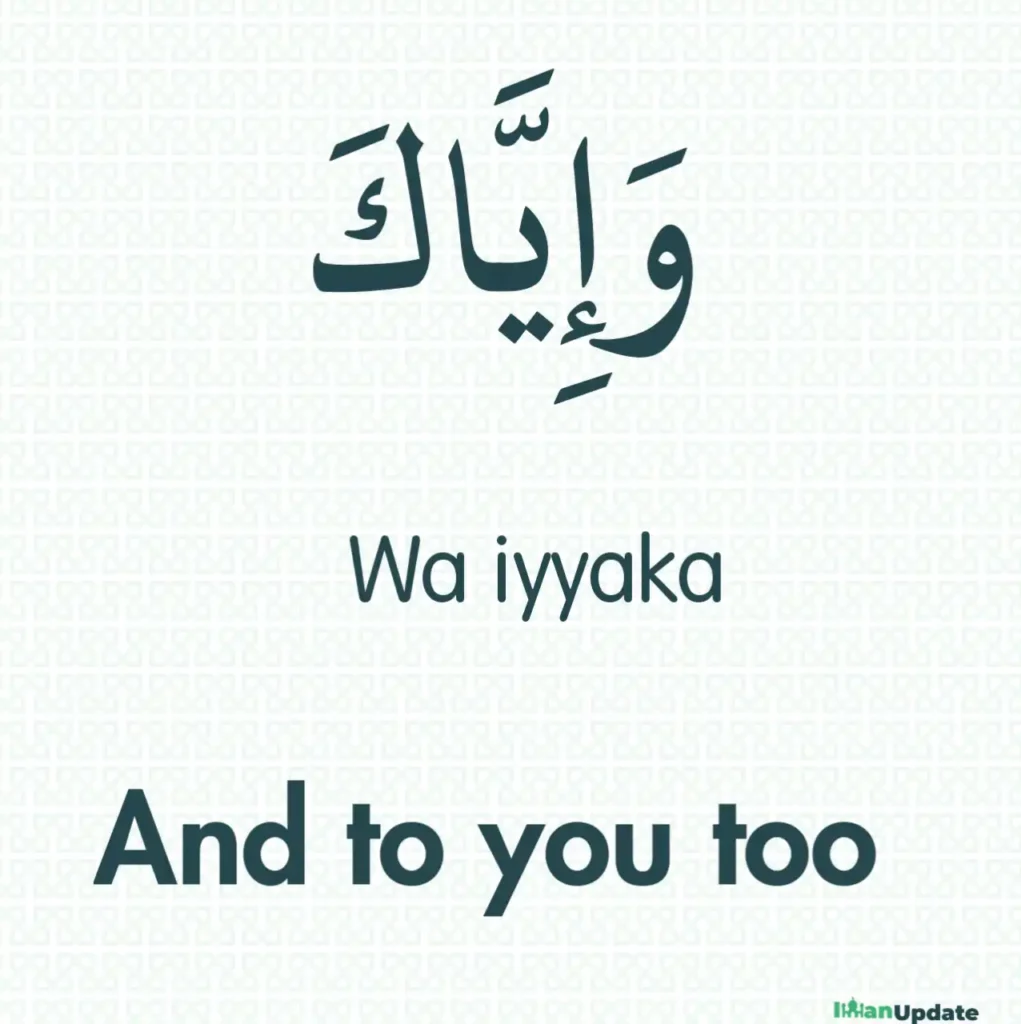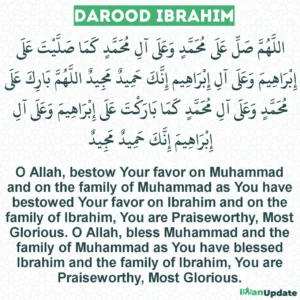Wa Iyyaka in Arabic and Meaning In English (Male And Female)

When responding to expressions of gratitude like “JazakAllahu Khair” or various forms of du’as (supplications), one common and appropriate reply is “Wa Iyyaka”.
This Arabic phrase is widely used among Muslims in their daily interactions and conversations, conveying a rich meaning that goes beyond a simple response.
In this blog post, we will delve into the significance and proper usage of “Wa Iyyakum”, uncovering the depth and beauty behind this everyday phrase.
How To Write Wa Iyyaka in Arabic?
Here is how to write Wa Iyyaka in Arabic:
وَإِيَّاكَ
Wa Iyyakum Meaning In English
The phrase “Wa Iyyakum” is a combination of two words: “Wa” meaning “and” and “Iyyakum” meaning “to you”. Together, it translates to “and to you too” or “and to you”.
While it isn’t a Sunnah dua, it is a common response when someone prays for another person.
You can reciprocate with similar sentiments, such as “to you as well”, “same to you”, or “May Allah reward you with good, waiyyakum”. When someone makes a du’a for you or says “jazakAllah khair”, respond with “wa iyyakum” and then make a du’a for them as well.
This exchange is a beautiful way to share blessings and goodwill.

Alternatively, you can offer any other appropriate dua’a if you prefer. However, it’s worth considering varying your response, as relying solely on “waiyyakum” might inadvertently imply that it’s a sunnah practice, potentially leading to misunderstanding.
Although “Wa iyyakum” is grammatically plural, it’s still acceptable to use when addressing a single person, as in Arabic culture, using the plural form is a sign of respect and politeness when speaking to someone.
There is slight difference between Wa iyyak for male and female, and this is due to the Arabic grammar rule. The correct to say wa iyyak to a male is Wa Iyyaka and Wa iyyaki for female.
To summarize on how to respond to JazakAllahu Khairn for male, female and plural, refer to the table below.
| Arabic | English | Person |
| وَإِيَّاكَ | And you too | Male |
| وَإِيَّاكِ | and you too | Female |
| وإياكما | and you too | Dual |
| وَإِيَّاكم | and you too | Male (plural) |
| وَإِيَّاكن | and you too | Female (plural) |
Another formal response is “Wa Antum Fa JazakumUllahu Khairan” (وَأَنْتُمْ فَجَزَاكُمُ ٱللَّٰهُ خَيْرًا), which translates to “And to you all too, may Allah reward you with goodness.”
This phrase is a polite and respectful way to reciprocate expressions of gratitude or du’a, conveying a wish for the other person’s well-being and prosperity.






